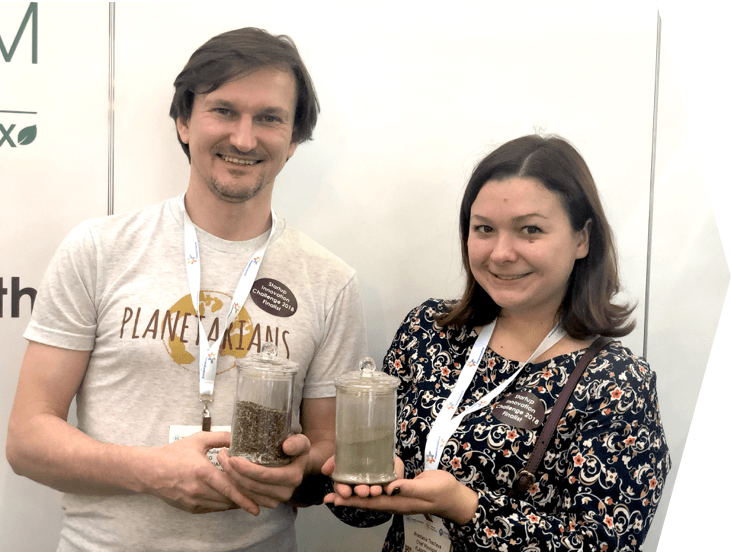Consumers are changing their tastes and dietary preferences more rapidly than ever. From a plant-based diet to the paleo diet, to flexitarians who dabble between vegetarianism and meat-eating, and ketogenic consumers who eschew carbohydrates of any kind, the never-ending barrage of new eating philosophies is sending big food companies’ heads spinning.
Despite their deep pockets, internal R&D departments, and expansive retail footprints, however, traditional food companies are having a tough time keeping up with the demand for new products that feature different ingredients — or that lack traditional ones.
As they say, however, one man’s trash is another man’s treasure. The inability of big food companies to pivot into a new wave of products creates the perfect opportunity for innovative ingredients companies to offer them ready-made solutions that will allow traditional CPG companies like General Mills and Nestle to reformulate existing products or to launch new lines that meet consumers’ new preferences.
An emerging class of startups is fast at work on innovative ingredients like San Mateo, CA-based PLANETARIANS, which recently closed a $750,000 seed round with Barilla Group’s BLU1877 venture arm, Techstars, SOSV, The Yield Lab, and a group of angels.
The startup has created a technology that upcycles spent sunflower into a high-protein, high-fiber flour. Its technology sterilizes, destroys anti-nutrients, and functionalizes fiber in one step. The resulting protein flour has three-times the protein and two-times the fiber at the same cost of wheat flour, according to the startup. The ingredient could have major appeal for consumers who are choosing a low-carb/high-protein diet as well as plant-based eaters looking to make sure they get enough protein.
For a long-standing conventional CPG company like Barilla, the ability to swap out 30% of its existing flour for PLANETARIANS’ sunflower meal-derived flour offers the promise of an easy way to stay relevant on consumers’ grocery lists.
“If you incorporate more protein in a product, it becomes denser because of the nature of the protein. We found a sweet spot by replacing 30% of the existing flour in a recipe with our flour. At that level, it won’t change the texture or flavor,” company founder and CEO Aleh Manchuliantsau told AgFunderNews from Italy, where he was in the midst of product trials with Barilla. “The purpose of the trials at Barilla’s R&D pilot plant is to explore whether we can make the same products with our flour so that they can offer a better version of the products that customers already use.”
The startup has also worked with Italian meat-focused CPG company Amadori to make flexitarian meatballs and ragu.
“In the US, you see completely plant-based substitutions like Beyond Meat or Impossible Foods, but in Europe, we have another approach because customers want to keep meat in their diets. So, we replace part of the animal proteins with plant-based proteins like our flour, which also fortifies the product with fiber,” Manchuliantsau adds.
PLANETARIANS will use the funding to continue trials with customers and enlarge the range of product applications from already tested snacks including pasta, baked goods, and meat applications as well as breakfast products, dips, and purees.
The company was recently selected as part of FoodBytes! San Francisco’s 2019 cohort, which is gearing up for Demo Day on March 28. In 2017, PLANETARIANS completed feasibility tests at the University of Minnesota and received an equity investment from TechStars Accelerator. Last year, it released chips made from upcycled ingredients that posted 69% month-to-month growth on Amazon according to the company.
Novel Ingredient Startups Are Answering Big Food’s Call
A number of other startups are also upcycling waste ingredients. ReGrained repurposes the grain that is created every time beer is brewed and upcycles it into its SuperGrain+ flour using patent-pending technology. It’s also developed a line of granola bars including the flour featuring flavors like chocolate coffee stout.
Renewal Mill upcycles okara, a pulp byproduct created during the manufacturing of organic soymilk production, into a versatile high-fiber flour in an effort to cut down on food waste.
Apart from upcycled ingredients, some companies are also commercializing novel ingredients, like AgFunder portfolio company Kuli Kuli, which is manufacturing and distributing moringa, a superfood that’s become the fastest growing green supplement in the category surpassing matcha.
Mazza Innovation, a Canadian startup with a novel method of extracting plant-based ingredients for the food & beverage, cosmetic and pharmaceutical industries, was recently acquired by global colors, flavors, and fragrance company Sensient Technologies.
As the rapidly growing alternative protein segment expands, a number of ingredient makers are clamoring to provide protein-focused ingredients that still pack flavor.
Ginkgo Bioworks, the unicorn startup manufacturing microbes using genetic engineering and fermentation, recently spun off its food-related business into a new company called Motif Ingredients that will focus on providing food companies with ingredients for their growing alternative protein product lines in the plant-based and meat alternative space.
Plant-based ingredients foodtech startup Nutriati has venture backing from London-based Tate & Lyle Ventures as well as vegetarian food fund PowerPlant Ventures. It’s working on a chickpea-derived high-protein, gluten-free chickpea powder.
Apart from upcycled ingredients, another class of mostly biotech driven startups is working on replacements for sugar and fat that don’t compromise taste or texture.





